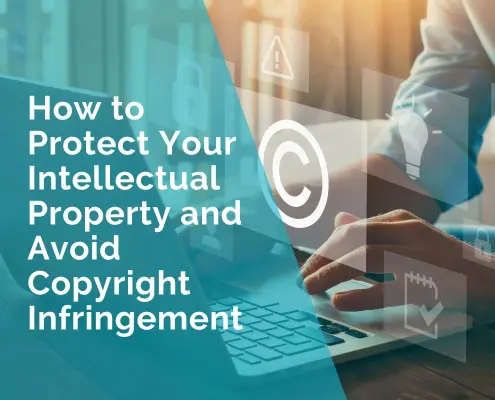Key Legal Considerations for Digital Publications and Online Content
Digital content is certifiably booming, with more publications releasing online only stories to help stay on top of the news media cycle. Digital publications have also levelled the playing field in a major way, allowing up-and-coming journalists and bloggers to build up their own platforms and readerships.
But whether you’re a solo blogger, an independent journalist, or operating a full-fledged online magazine, you need to do more than write great posts to maintain engagement online. In Australia’s ever-evolving media landscape, copyright issues and upholding journalistic ethics continues to be an area of great misinformation. Yes, the legal side of things can feel like trying to find your way through a labyrinth.
From copyright concerns to liability issues, the internet might feel like a free-for-all, but that doesn’t mean you’re off the hook when it comes to legal responsibilities. Make one wrong move, and you could find yourself facing litigation, large fines, or even having your content forcibly removed or your domain suspended as a worst case scenario. The last thing you want is to go viral for the wrong reasons.
Whether you’re running an online magazine, managing a company blog or creating YouTube videos, knowing your way around key legal considerations is a non-negotiable. Let’s break it down so you can stay on the right side of copyright and publishing law online.
1. Protect Yourself with Professional Indemnity Insurance Cover
If you’re writing content that will be published online, you need to consider the impact it could have on other people. Always understand that if a specific thing you said does, indeed, negatively affect one person or several people, you may open yourself up to legal implications. This is where professional indemnity insurance cover comes in. This type of insurance protects you against being accused of defamation, IP infringement and negligence. In simple terms, if someone sues you over something you’ve published, this instance can help cover legal costs and any potential compensation.
Picture this: you write an exposé about a business that’s been found to be operating unethically. If that business wants to sue for defamation, you could be looking at years of litigation and lots of legal expenses to prove your case. Without indemnity insurance cover, you’d be paying the legal fees yourself, which can get out of hand very quickly.
It’s the same for content creators or even business blogs that are giving advice — if someone implements your suggestions and experiences a loss, they could seek to hold you accountable. Whether you’re looking to publish YMYL (your money, your life) content or topical news stories that may run risks of defamation of third parties, having insurance is always going to be a wise, proactive step to protect your business and safeguard your company finances.
2. Copyright and Intellectual Property: Don’t Get Caught Out
One of the largest legal minefields in the digital publishing space is working in accordance with copyright law. Just because something’s online doesn’t mean you can use it for free. Whether it’s a photo, a song, or even a quote from an article — you need permission (or the proper type of licensing) before using it.
It works both ways, too. If you create unique original content, you have the right to protect it from unlawful or unauthorised use. Copyright-protecting your work, watermarks on your photos, and/or clear and visible disclaimers can help deter theft. If someone does copy your content, the good news is that Australian copyright law permits you to pursue legal action against the person or entity that has copied your work (but this can be a lengthy and costly process).
That’s why preventive measures — like using copyright notices or licensing agreements —are your best bet. You may even opt to secure a company account for stock photo services or design software like Canva or Adobe so your business can comfortably produce their own graphic assets or download royalty-free images without having to worry about breaching copyright laws. You can even use photo AI tools to generate your own images that are fully cleared for editorial use.
3. Defamation Laws: Watch What You Say
And speaking about defamation, did you know that Australia has some of the world’s toughest defamation laws? And our defamation laws don’t spare digital publishers either. If your content damages someone’s reputation in a false or deceptive way, you may be susceptible to litigation from the affected party — even if you didn’t intend to do any harm. From newspaper articles and blog entries, to posts on social media and reviews, what you say matters and any false or damaging statements can translate into legal claims.
A good rule of thumb? If you’re making claims about an individual or business, make sure you have the evidence to back it up. Use legally responsible language like including key phrases like ‘allegedly’ when reporting on topical events.
And remember that opinions framed as facts can also get you in hot water – even if those opinions aren’t your own! In other words, if you are publishing user-generated content on your platform (like comments or guest posts), you may still be held liable for what is posted. Moderation tools and clear disclaimers can help minimise your risks here.
4. Privacy Laws: Handle Personal Data Responsibly
If any of your online content involves collecting personal data — like let’s say email sign-up, surveys, online purchases etc. — you need to be across Australia’s privacy laws. The Privacy Act 1988 sets strict guidelines on how businesses and content creators can collect, store, and use people’s information.
If, for example, you run an online magazine with a subscriber list, you can’t simply collect email addresses and blast people with promotional content. You need their permission, and you also need to have an opt-out or unsubscribe button in your emails by law.
Similarly, when dealing with sensitive data, you definitely want to ensure it’s encrypted and stored securely. Failing to follow these digital privacy laws can lead to hefty fines and a damaged reputation, so it’s worth getting familiar with your obligations to your audience and patrons.
5. Trademarks and Branding: Avoid Legal Battles
Coming up with a killer name and logo for your digital publication is exciting, but before you get too invested, check if that trademark and brand name is actually legally available. Trademark infringement is a big deal, and using someone else’s registered name or logo can get you in legal trouble, either killing your publication before it can even begin or even worse – bringing it to an abrupt halt once you finally do start to see some traction.
A simple trademark search through IP Australia can save you a world of trouble down the line. If you’re serious about brand building, you may want to trademark your name and logo and stop others from using them. This not only gives you legal protection but also adds credibility to your online presence.
And if heaven forbid, you do find yourself hit with a trademark infringement claim down the line and must then change your domain name and branding, make sure you handle your URL change with the utmost care and attention to detail to support your site SEO. You want to limit any impact to your domain authority and page rankings to keep your site traffic from falling permanently.
6. Advertising & Sponsored Content: Stay Transparent
Lastly, if your website publishes sponsored posts, affiliate links or even paid ads, be honest about it by including sponsored tags and other relevant disclaimers directly on your pages. Under Australian Consumer Law, you must disclose paid partnerships and ensure that any promotional content is truthful and not misleading. Any sponsored posts that aren’t clearly tagged can easily be argued to be ‘misleading’, leaving you culpable for fines from the ACCC (Australian Competition and Consumer Commission).
If, for example, you’re reviewing a product, and you were paid to do so, you must state that clearly. And keep in mind that the ACCC has been cracking down on influencers and content creators who fail to disclose paid promotions, and penalties are growing increasingly severe. The last thing you want is to lose your audience’s trust because you haven’t been transparent about sponsored content.
In Conclusion
The digital landscape can feel like the Wild Wild West at times, over the World Wide Web – but that doesn’t mean it’s lawless. Whether you’re a small-time personal blogger or running a full scale online publication, understanding the legal do’s and don’ts of publishing online content is vital. Thankfully taking measures like reading up on copyright laws and privacy regulations, doing your due diligence when fact-checking content, and securing protections like professional indemnity insurance cover and other legal support wherever needed can help to keep your brand and publication safe from litigation. Taking these precautions can help you avoid sticky situations and allow you to do what you do best: creating superb content.
With an informed and proactive approach, not only are you protecting yourself, you’re also establishing a reputable, legally compliant, and sustainable digital presence. So before you publish your next great piece, get into the habit of double-checking your legal bases.
***************
Ada Martin










